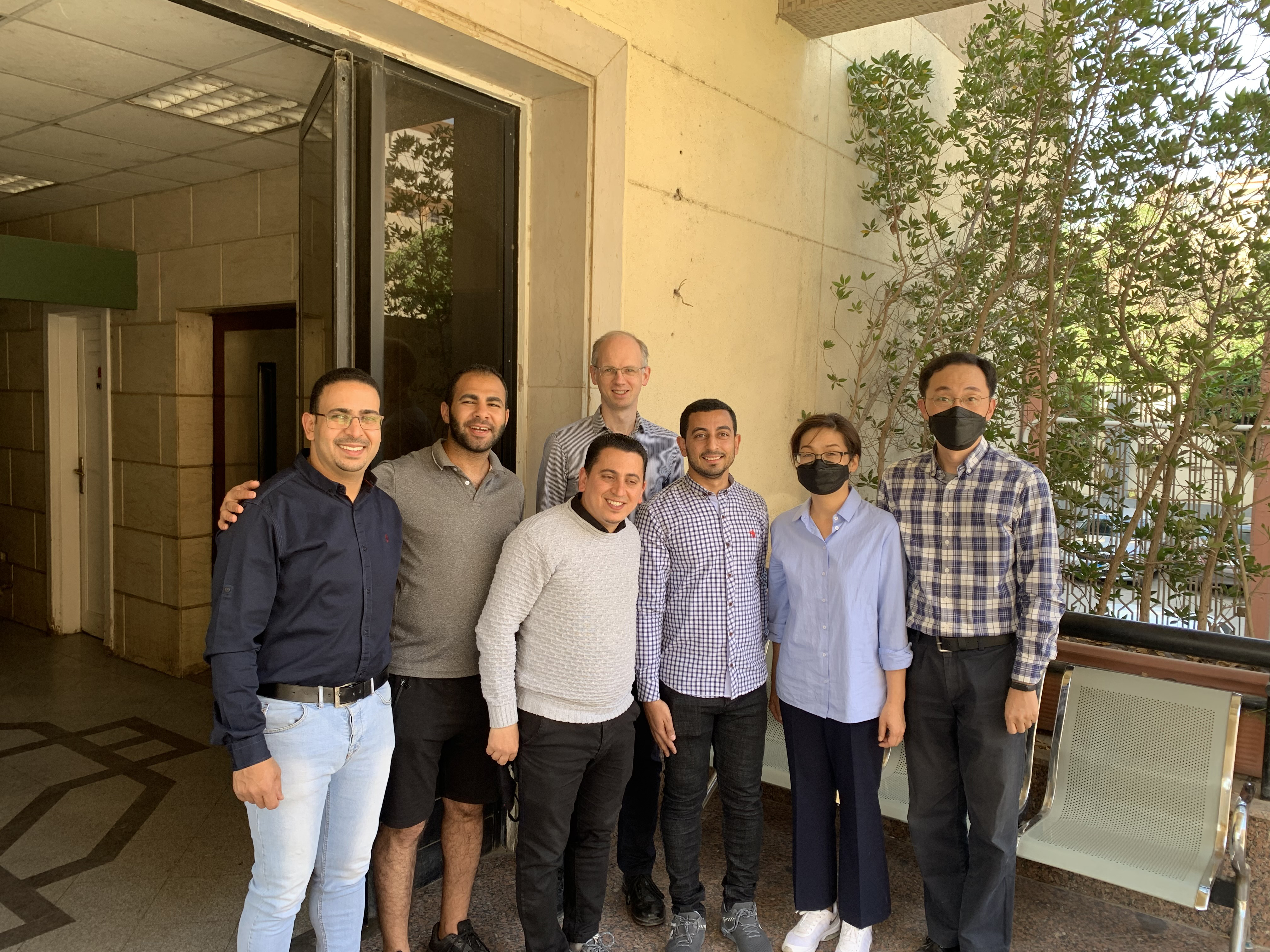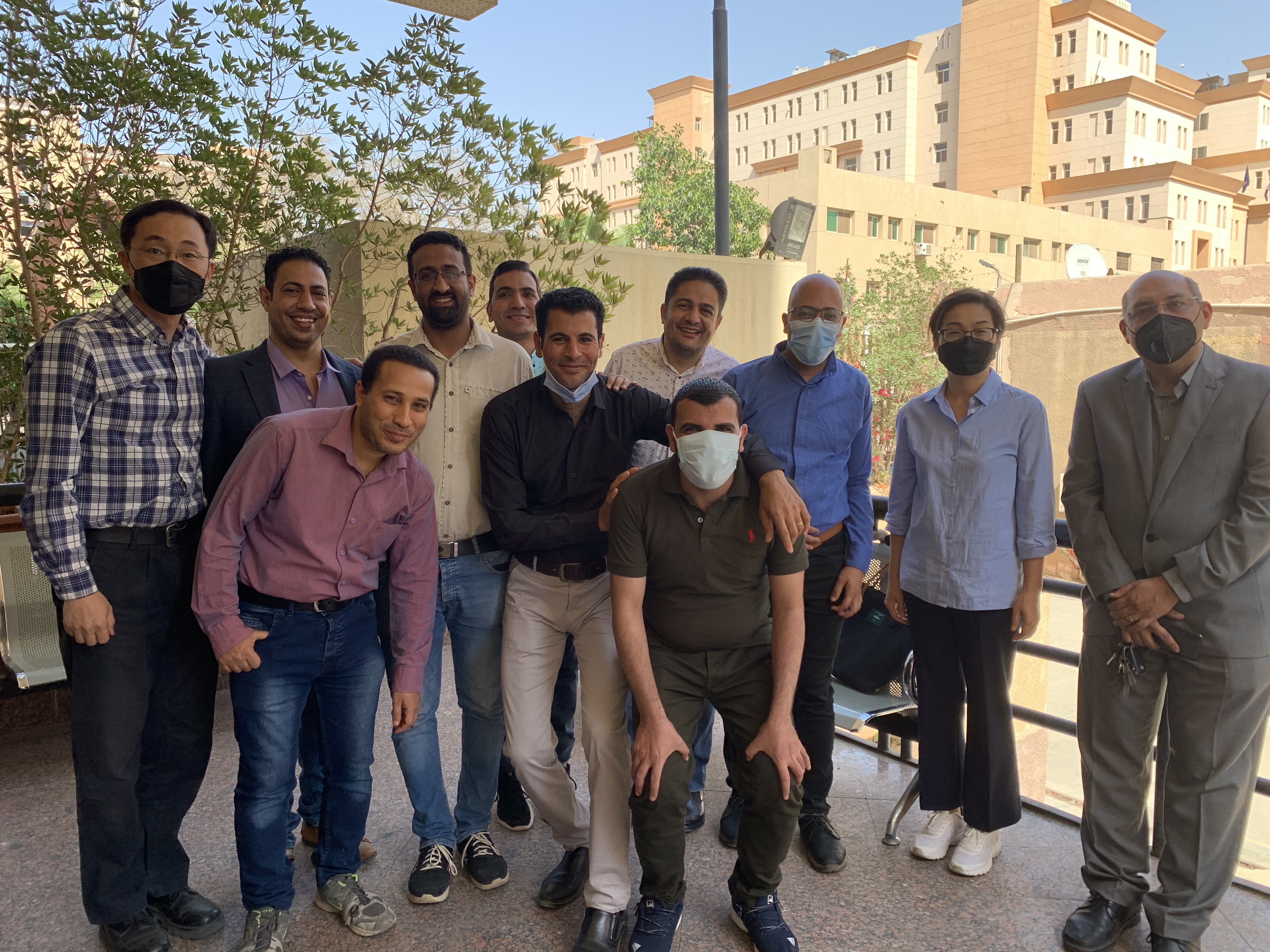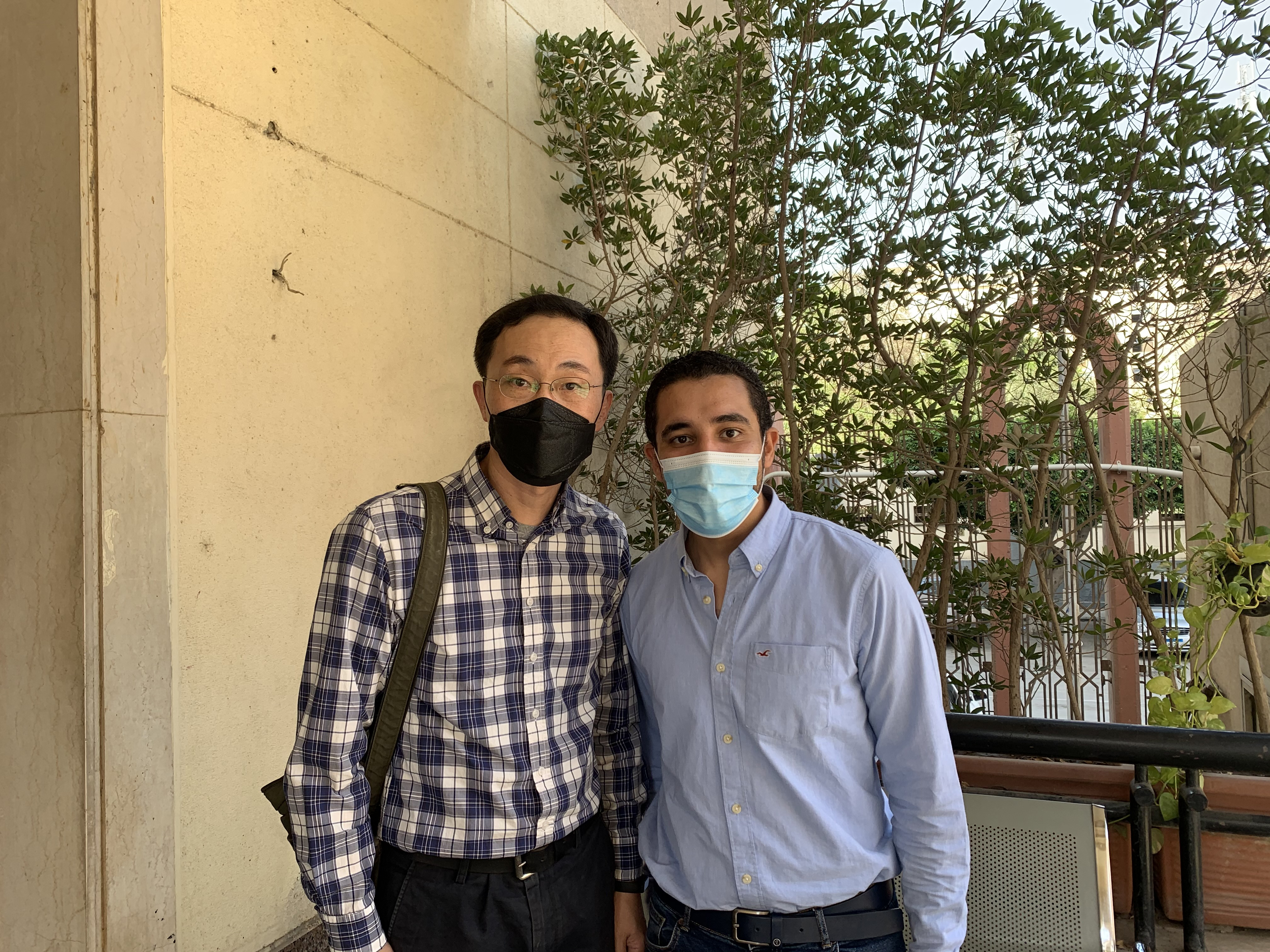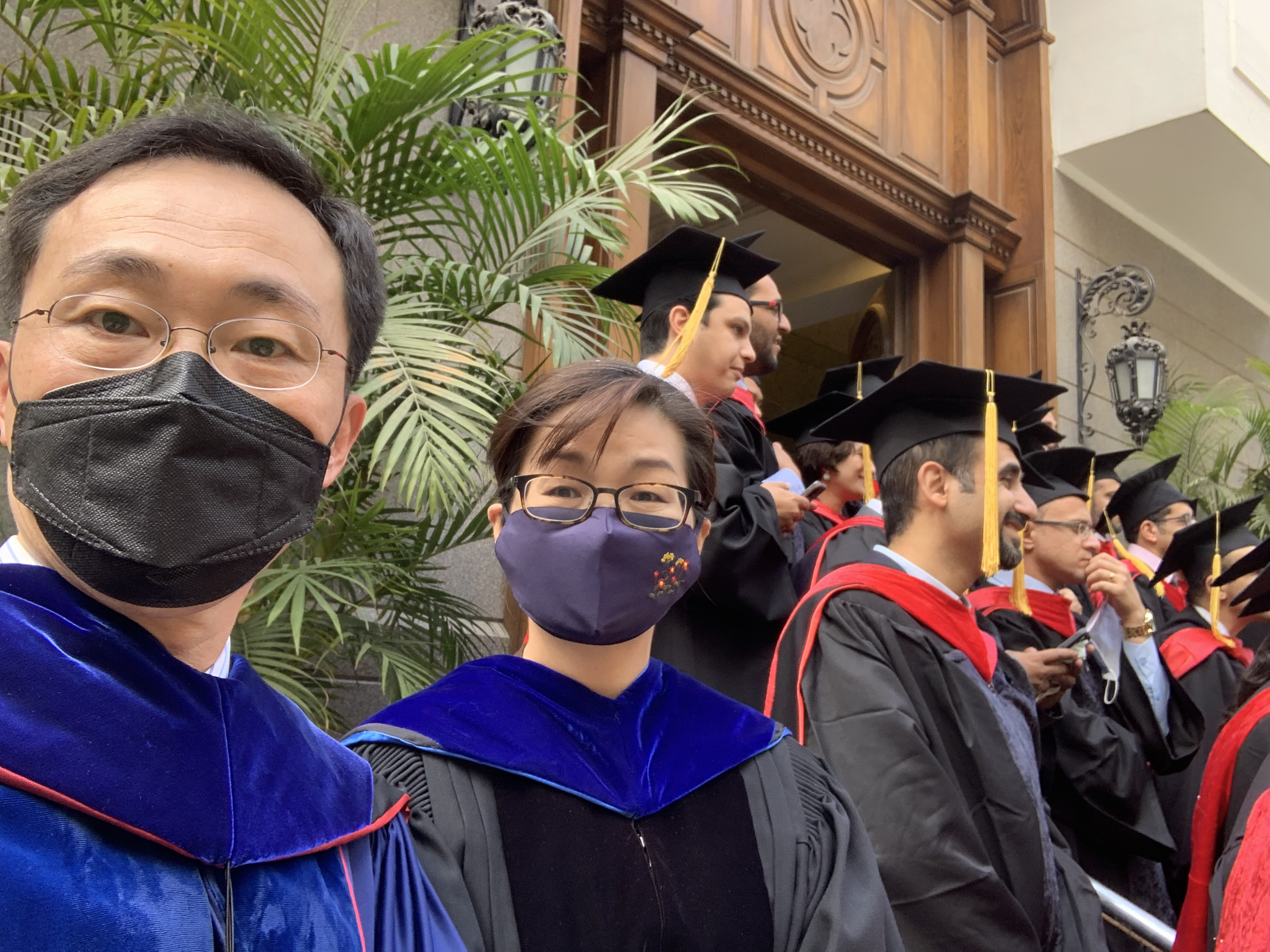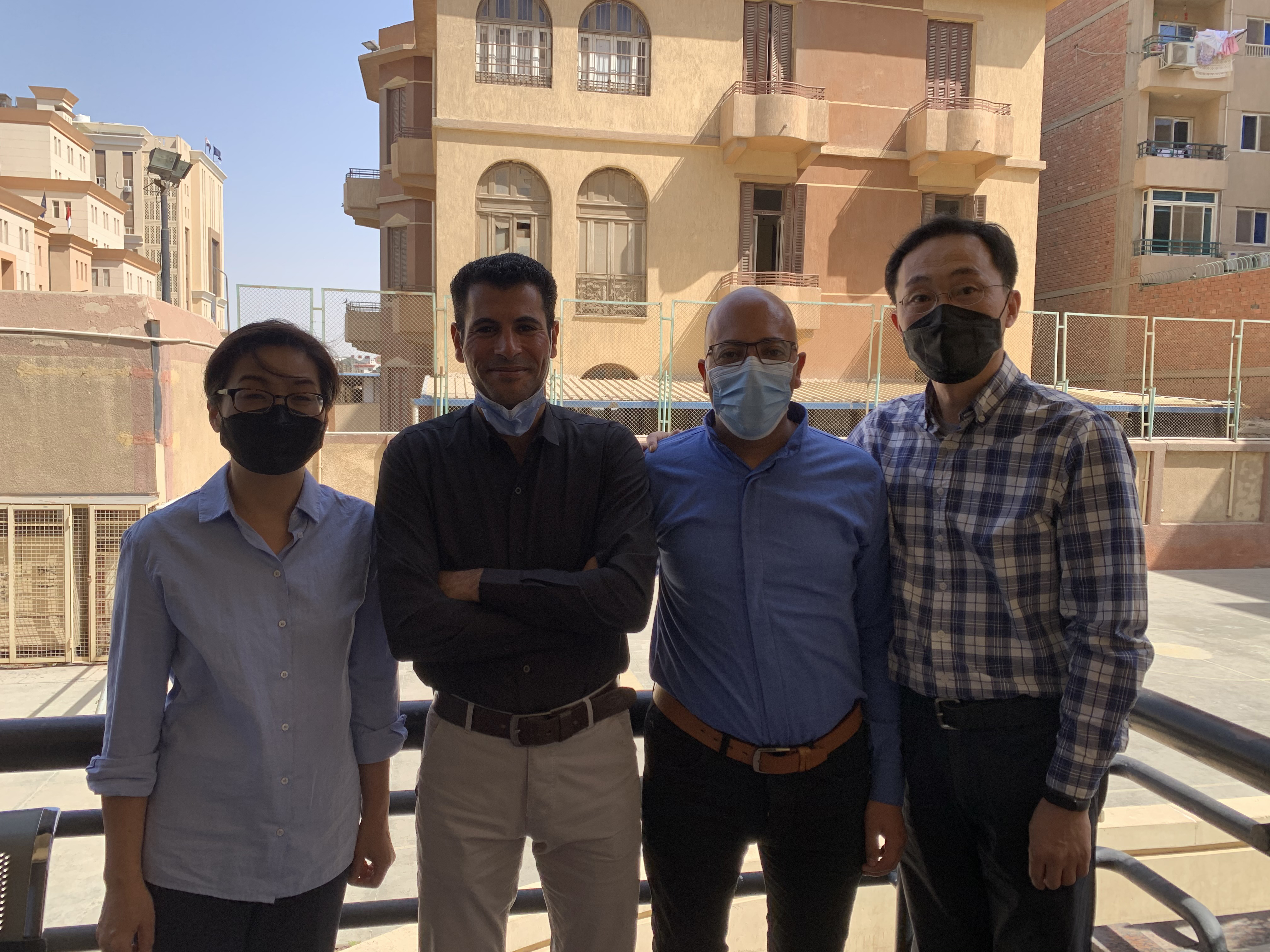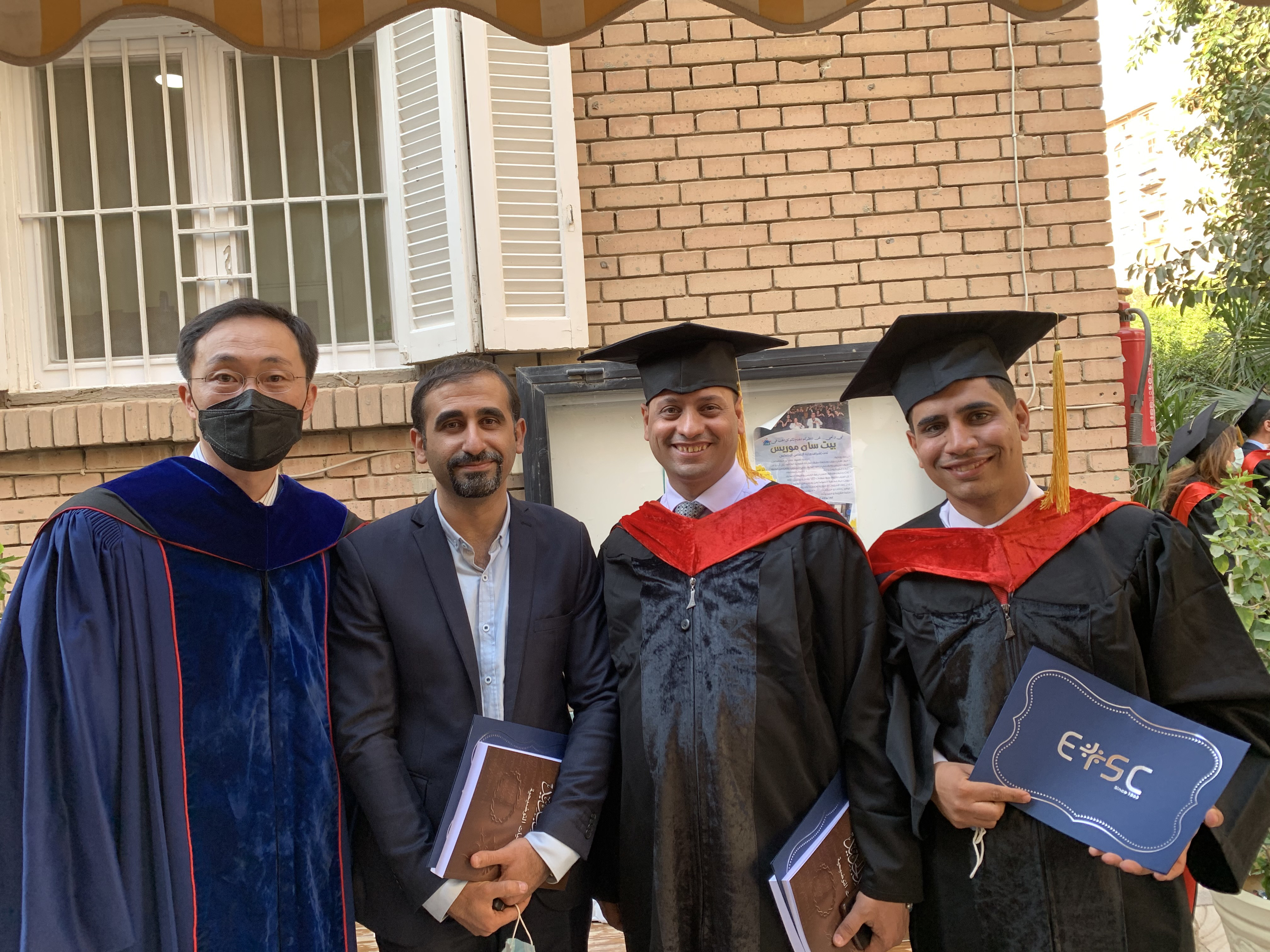A Letter from Noah Park and Esther Shin, serving in Egypt
Spring 2021
Write to Noah Park
Write to Esther Shin
Individuals: Give online to E200536 for Noah Park and Esther Shin’s sending and support
Congregations: Give to D507591 for Noah and Esther’s sending and support
Churches are asked to send donations through your congregation’s normal receiving site (this is usually your presbytery).
Subscribe to our co-worker letters
Greetings from Cairo!
We have been busy since we returned to Cairo in early February. Our classes became larger with more students than the previous year. They participate in ZOOM meetings from Kuwait, the Arab Emirates, Norway, Australia, and the U.S. It is a blessing that the Evangelical Theological Seminary in Cairo (ETCS) can serve Arabic-speaking students beyond geographical boundaries during this unprecedented time of separation. In my case, I communicate with more than 50 students at least a few times a week. This way of teaching takes quite a lot of time and energy but is very rewarding.
In early April, we celebrated the postponed graduation ceremony for the class of 2020. Not all the graduates could come due to COVID-19, and those who came could not invite their parents and friends. Nevertheless, the graduates and the faculty members were genuinely grateful for the gathering that officially marked the end of the previous academic year. We were especially happy to see our students who are now serving as pastors in congregational ministry. This MDiv class actually began their first year just after we arrived at ETCS in 2016. We remember each one of them and rejoice in the many ways they have grown and matured.
The seminary also decided to gather the students together for the first time since the COVID-19 pandemic began in mid-April. The second and third-year students came first, then the first and fourth-year students. The faculty members were nervous, but the MDiv students were just happy to see one another after more than a year. We realized that the fourth-year students would soon graduate, and the first-year students had never met the professors in person. What an ironic year it has been!
We would like to introduce you to some of our graduating students.
Adel, a very diligent student in his early 30s, is from Mallawi in Upper Egypt. During his four-year program, he lost his younger brother in an accident and recently lost his mother due to COVID-19. In addition, he also has his own health issues. But his practical challenge was earning a living for his family that includes two boys (six and two years old). He experienced the seminary as a caring and nurturing community that equipped him to be a church leader. His upcoming ministry will be in a rural area. Many of his parishioners will probably not have been able to go to school. He will also have to confront issues of age-old customs and superstitions in his ministry.
Amin, a pastor’s kid in his mid-20s, is from Nag Hammadi, where the Gospel of Thomas was found. He came to the MDiv program right after college. When we first met him four years ago, he looked like a college freshman, but he has matured in many ways. As a single student supported by his father in an established ministry, he did not have the same challenges as other students. He struggled, at first, to understand his calling to be a pastor. Now he is confident about what he wants to do in the near future. He will begin his ministry as an associate at a congregation in the Cairo metropolitan area near the Pyramids of Giza and will minister to teens and young adults.
Issa, a passionate man in his late 30s, used to work for an NGO for social welfare in Minya in Upper Egypt. In the first year of his study, his wife underwent major surgery, and the seminary community helped his family so that he could continue his studies. His youngest daughter was seriously sick, and recently all his family, including his three children, contracted COVID-19. He reflects that “challenges are a sign of human existence” and “through them, we become a living sermon among people.” We have come to think that Issa may illustrate the survival and perseverance of Christianity in Egypt for the past two thousand years. He is already leading a congregation in Bani Ubaid near Minya that did not have a pastor for several years. He hopes to reorganize the church internally and fight poverty and unhealthy Pentecostal influences in the area.
As we write this letter, we want to underscore that our students’ theological education and commitment to Christian ministry in Islamic society are possible, in part, through your generous support and prayers. Indeed, Presbyterians in the U.S. founded and have supported the Egyptian Evangelical (Presbyterian) Church and ETSC for more than 150 years. As teachers, we witness the yearly fruits of this incredibly long relationship. We thank you for your continued generosity and participation in our ministry. And we ask you to pray for our graduates and graduating students, especially for their ministries.
In the midst of the ever-worsening global pandemic, Egypt is celebrating Ramadan, the ninth month of the Islamic calendar. People fast from sunrise to sunset and wish each other a generous Ramadan with the words, “Ramadan Kareem.” During this magical month, the whole country looks different, and it feels like nothing is going on during the day. After the sunset, however, the city becomes alive with “iftar” (a large meal) shared with friends and relatives. In the meantime, it is also a good time for Christians since they can enjoy a relaxed lunch at restaurants.
Noah and Esther
Associates for Ecumenical Partnerships in Egypt
![]() You may freely reuse and distribute this article in its entirety for non-commercial purposes in any medium. Please include author attribution, photography credits, and a link to the original article. This work is licensed under a Creative Commons Attribution-NonCommercial-NoDeratives 4.0 International License.
You may freely reuse and distribute this article in its entirety for non-commercial purposes in any medium. Please include author attribution, photography credits, and a link to the original article. This work is licensed under a Creative Commons Attribution-NonCommercial-NoDeratives 4.0 International License.
Tags: Cairo, COVID-19, Evangelical Theological Seminary in Cairo, Matthew 25, ramadan
Tags: Noah Park and Esther Shin
